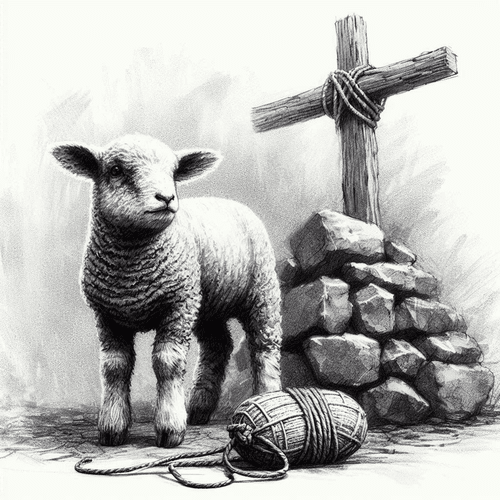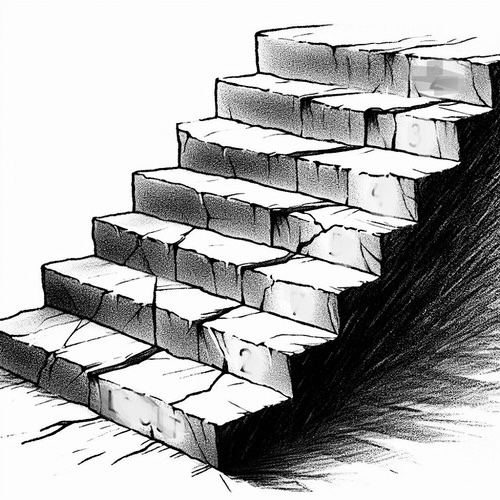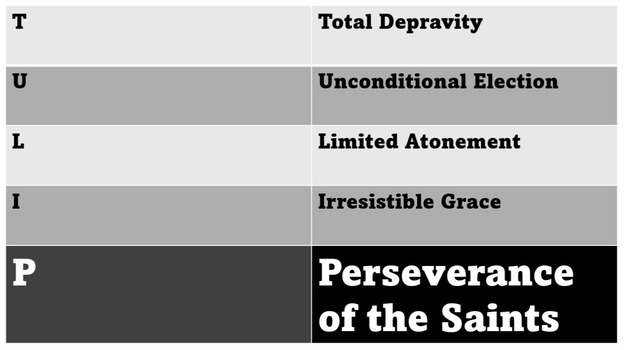Penal Substitutionary Atonement: The Blazing Heart of the Gospel
At the core of Christian theology lies the sublime truth that Jesus Christ died on the cross as a sacrifice to pay for human sin. This isn’t some symbolic act of cosmic child abuse, as critics charge. Rather, it’s the beautiful brilliance of penal substitutionary atonement—an act of unfathomable love.
What Is Penal Substitutionary Atonement?
Penal means “bearing punishment”—Christ bore our punishment willingly. Substitutionary signifies “in place of another.” Atonement conveys the removal or covering over of sin’s guilt and penalty. Together, the words mean Christ voluntarily taking upon Himself the righteous wrath and judgment our sins deserved from God, satisfying divine justice against iniquity so we could be forgiven and reconciled to Him.
As our sinless, divine substitute, Jesus suffered the full, infinite consequences we deserve so we could be pardoned and adopted as God’s beloved children (Romans 5:8). He who knew no sin became sin for us, bore our condemnation on that cross, so His righteousness could be credited to us (2 Corinthians 5:21). This is the golden thread of the gospel woven through Scripture.
God’s “wrath” refers to His settled, righteous opposition and judgment against sin flowing from His infinitely holy nature. For God to merely overlook sin would violate His perfect justice. But in Christ’s substitutionary death, both God’s justice and mercy are fully upheld. The cross showcased the radiant glory of God’s righteousness being satisfied, while simultaneously demonstrating the stupendous wonder of His grace.
Criticisms of Penal Substitution
Objection: “Divine Child Abuse?”
Some decry penal substitution as “cosmic child abuse”—an abusive Father brutally punishing His innocent Son. However, this critique ignores the unified plan of the Triune Godhead, with all Three Persons in willing agreement for this redemptive mission before creation itself (1 Peter 1:20). Far from abuse, it was a glorious rescue operation, with the Son demonstrating His own willing submission to this sacrificial work. The cross was not an injustice but the very centrepiece of cosmic justice.
Objection: “It Didn’t Accomplish Anything”
Others argue penal substitution is unnecessary, a “Divine Violence Visited on the Beloved,” accomplishing nothing new. This fails to recognize that while God is infinitely merciful, He is simultaneously infinitely just (Isaiah 30:18). Sin’s wages had to be paid, God’s holiness satisfied. Only at the cross could God’s perfect righteousness be upheld while His lavish love was extended.
Objection: “Forgiveness Should Be Free”
Some argue if God is loving, He should freely forgive without requiring a penalty-bearer. However, this view fails to recognize that for God to simply pardon sin would mean being unjust. As the perfectly righteous Judge, a truly just God cannot rightly clear the guilty apart from sin’s due penalty being paid (Deuteronomy 32:4).
By sending His Son as the sinless God-man to bear our condemnation, God could then freely forgive repentant sinners while still upholding justice (2 Corinthians 5:21). As our penalty was paid in full at the cross, God could extend His mercy in a way that satisfied both His love and His holiness. God’s forgiveness came at the incomprehensible cost of His beloved Son’s life. He didn’t turn a blind eye, but drank sin’s bitter curse Himself in order to nullify evil once and for all.
Objection: “Aren’t We Still Paying For Sin?”
The claim is made that if Christ paid it all on the cross, why do believers still face difficulties, sickness, or death?
At the cross, Jesus fully and willingly paid the penalty for sin, redeeming us from eternal condemnation and separation from God (Romans 8:1). However, the process of sanctifying believers and ultimately restoring the entire created order remains an ongoing work until Christ’s return.
There is a vast difference between the punishment for sin that Christ bore on our behalf, and the loving parental discipline believers experience in this life as part of the sanctification process (Hebrews 12:5-11). Just as any good father lovingly disciplines his children, our heavenly Father’s discipline in the lives of His redeemed children aims not to punish but to produce Christlike character.
The troubles and adversities believers face are not punitive, but purposeful refining tools in the hands of a loving Father committed to conforming us to the image of His Son (Romans 8:29). No child who experiences nurturing discipline views it as punishment, but embraces it as an expression of their father’s faithfulness in preparing them for maturity.
So while the debt of sin has been paid, we are not yet fully restored. We face life’s difficulties as redeemed children being lovingly trained, not as condemned sinners still paying for guilt. The cross cleared our criminal record; our Father’s discipline prepares us for reigning alongside Christ in the universe’s coming renewal (Revelation 21:5).
The Glorious Gospel Truth Criticisms of penal substitution fail because they overlook the gravity of sin, the unified wisdom of the Triune God, and the reconciling beauty of divine love bearing sin’s full costs.
The cross wasn’t an injustice but the very centre of cosmic justice where God Himself drank sin’s bitter cup so we could have His sweet salvation. It displayed the full radiance of His righteousness and grace.
If we view the cross merely as sentimental symbolism devoid of substitutionary realities, we rob it of its spiritual dynamism. We have understood nothing of the transcendent holiness of God or of His justice or even of the heinousness of our sin. We have also grasped nothing of the Bible’s dire warnings about hell, from which Christ offers to rescue us. But when we embrace the truth the Lamb of God became our sin-bearer, the gospel bursts through in glorious power.
Plumbing the profundity of penal substitutionary atonement will fill us with ever-deeper awe for God’s incredible love. So let us abide in this gospel, glorying in its resplendent truth.
Related Reads:
Editor’s Pick

Was Jesus Abandoned by the Father on the Cross?
WHY WE ANSWER IN THE NEGATIVE “My God, my God, why have you forsaken me?” These words from the cross [...]

Why Do Some Respond to God’s Call While Others Don’t?
THE REFORMED VIEW ON OUTWARD AND INWARD CALLS EXPLAINED Picture this: Two neighbours attend the same church service. They hear [...]

Does Ocean Salt Content Prove a Young Earth?
A COMPELLING LOOK AT MARINE CHEMISTRY AND EARTH’S TIMELINE The Salt Question That Challenges Deep Time: If Earth’s oceans have [...]
Noah’s Flood: Where Did All the Water Come From? And Go?
The question hits every Bible-believing Christian at some point: “If Noah’s flood covered the whole earth, where did all that [...]

No Marriage in Heaven? What Does Mark 12:25 Mean?
“Will I see my spouse in heaven? Will we still be married?” These questions pierce the heart of every Christian [...]
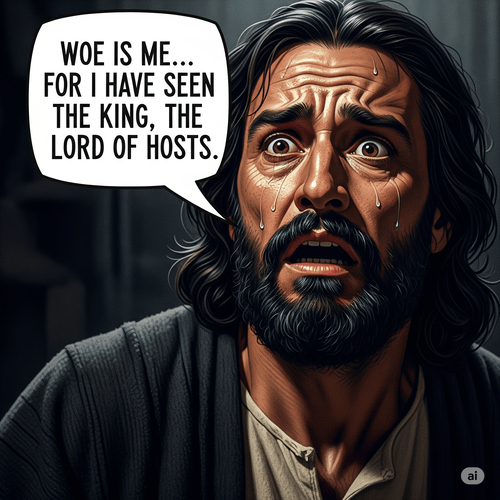
The Terror of Meeting God: What Isaiah 6 Reveals About Divine Holiness
WHEN ‘WOE IS ME’ IS THE ONLY PROPER RESPONSE TO A GLIMPSE OF GOD Picture this: You’re a prophet of [...]

Is the Holy Spirit Present in Unbelievers? The Biblical Answer
Can someone who doesn’t believe in Jesus Christ have the Holy Spirit living inside them? This question strikes at the [...]

The Gap Theory Exposed: Why Embrace a Young Earth?
The Gap Theory proposes there’s a vast time gap—millions or billions of years—between Genesis 1:1 (“In the beginning God created [...]

Rethinking Sickle Cell Anaemia: A Case for Intelligent Design
Sickle cell anaemia presents what many consider evolution’s strongest card—a genetic condition that causes suffering yet provides protection against malaria. [...]
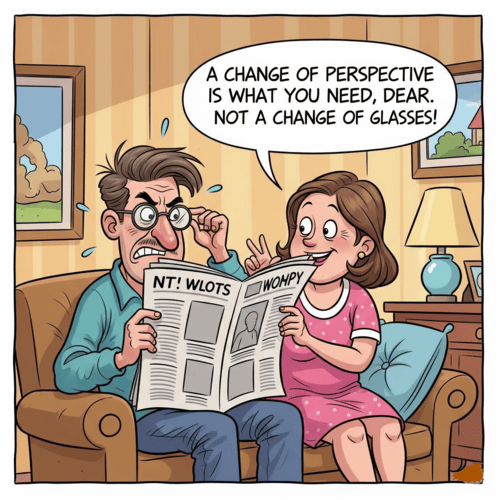
‘Bad’ Design: Flaw in Nature Or Flaw in Our Perspective?
When the Eiffel Tower was first proposed, critics called it a monstrous eyesore that would ruin Paris forever. Today, it’s [...]

